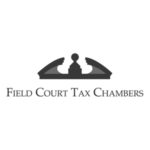Continue reading "Business property relief: No holiday"
Business property relief: No holiday

The late Mrs Maureen Vigne died on 29 May 2012. At that time, she was the sole owner of approximately 30 acres of land. From 2008 a livery business was operated on or from the land, offering a package which included:
The appeal was brought by Mr and Mrs Firth in their capacity as trustees of the L. Batley 1984 Settlement (the trust) against notices of determination issued to the trustees by HMRC on 7 September 2018, which refused Inheritance Tax (IHT) Business Property Relief (BPR) on the grounds that the interest of the trustees in the business carried on by the Lawrance (Hotel Living) Ltd (The Lawrance) consisted mainly in the holding of investments and was therefore not a qualifying business for the purposes of BPR.
On 14 November 1984 Lawrance Batley established the trust. Prior to 2012 th...
This case was an appeal against a notice of determination issued by HMRC under s221 Inheritance Tax Act 1984 (IHTA) which had ruled that the deceased’s furnished holiday lettings business did not qualify for business property relief (BPR). The only dispute was whether the business consisted ‘mainly’ of ‘holding investments’ within the meaning of s105(3) IHTA.
The business began in 1989 with one flat and expanded in 1991 and 1996 with the purchase of further flats in the same building. It continued until the deceased’s death on 27 December 2014.
The tribuna...
The testator (T) died in 2010 aged 86 with an estate of £391,573. The claimant (C) was the elderly sister of T’s late wife and sought to propound his last will dated November 2009, which left the estate as to two thirds to her and one third to the first defendant (D1), T’s daughter, who was also executor along with the second defendant. The third and fourth defendants (D3, D4), T’s two sons, challenged the validity of the 2009 will on grounds of lack of testamentary capacity and/or fraudulent calumny allegedly perpetrated by D1 (who was the beneficiary under C’s will). D3 and D4 therefor...
Mr Gill’s estate included the house in which he lived, a brick barn and outbuildings and 21 acres of permanent pasture. During the relevant period Mr Gill did not own any livestock. He allowed farmers to graze their livestock on his agricultural land under annual grazing licences. It was not disputed that the house was of a character appropriate to the farm.
HMRC refused agricultural property relief (‘APR’) in respect of the value of the house, barn and outbuildings on the basis that neither the house nor outbuildings were occupied for the purposes of agriculture, and refused the ...

Continue reading "Business property relief: No holiday"
The deceased owned a property, Carnwethers, on the Isles of Scilly, from which she ran self-catering holiday accommodation business, as well as occasional bed-and-breakfast accommodation. There were four self-catering apartments which were well-furnished and provided with numerous additional amenities, and particularly assiduous concierge assistance from the owners. On her death HMRC issued a notice of determination refusing business property relief on any of the value of Carnwethers on the basis that the business consisted mainly of the holding of an investment.
The deceased’s pe...
Mrs Ross originally owned a hotel called the Port Gaverne Inn in Cornwall and later acquired eight holiday cottages across the road called the Green Door Cottages. When she was no longer fit enough to run the business, the hotel was sold though its new owner agreed to provide services to guests renting out the cottages. A handyman was employed by the partnership which owned the cottages and other properties. When Mrs Ross died on 7 November 2011, she was entitled to a two-thirds share in the partnership and the total value of all the properties held by it amounted to £1.5m. The appellant...

Continue reading "Business Property Relief: Going for gold"

Continue reading "Business Property Relief: Room for interpretation?"